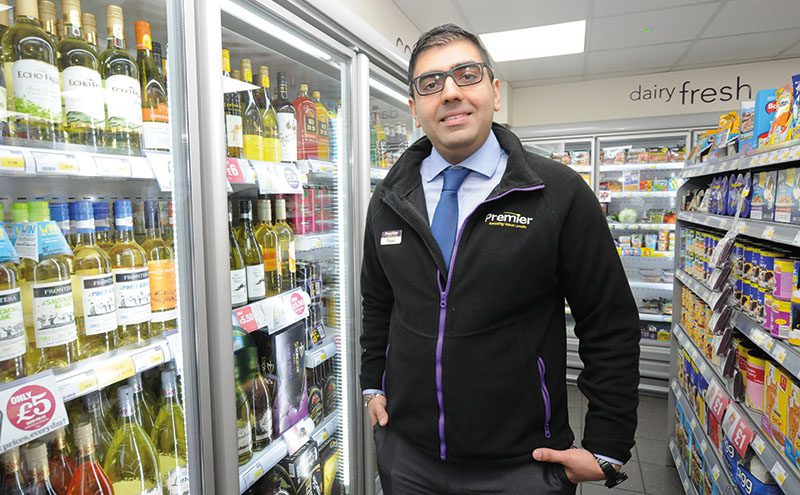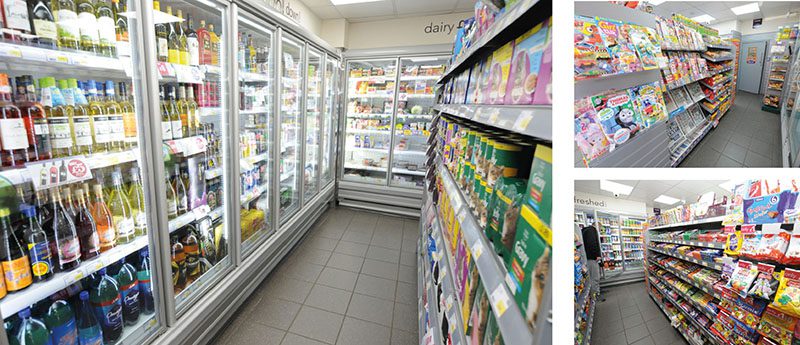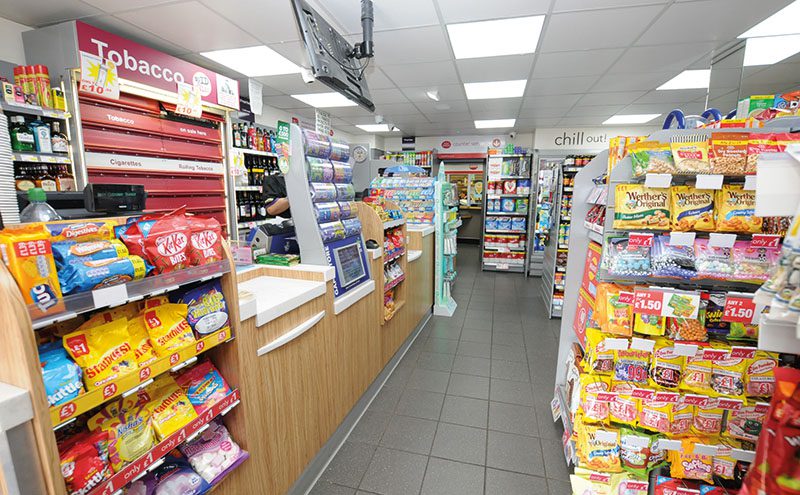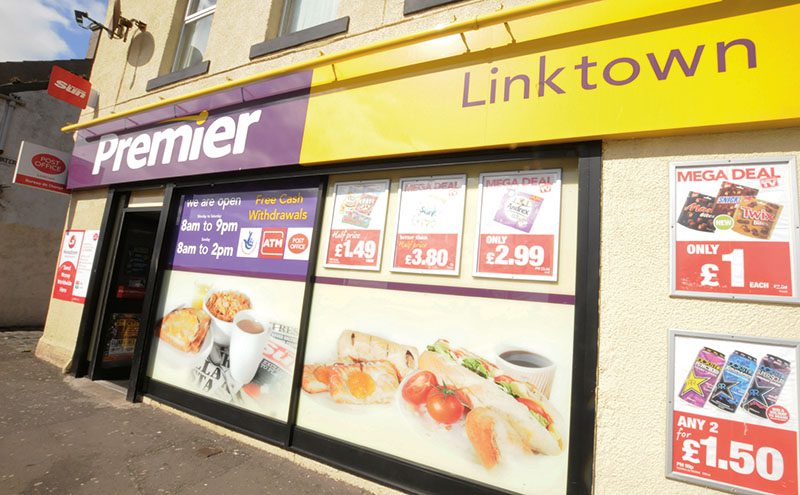We ask some of Scotland’s young c-store retailers about their businesses and the key issues of the day.
Linktown Local in Kirkcaldy has been completely transformed since Faraz Iqbal took over the running of the family business, but he has much more planned for the future.

[box style=”0″]
We’re looking for new generation retailers and new ideas all across Scotland. If you’d like to take part or want to recommend another retailer just contact John on 0141 567 6032
john.mcnee@peeblesmedia.com
[/box]
How did you get started in retailing?
I grew up in retailing. From a very young age I would come to the shop with my dad and go to the cash and carry. I went to university and got a Masters in civil engineering. When I left I had to make the decision about what I wanted to do. Did I want to be an engineer or a retailer? And I decided to get stuck into the business. I had a good degree and could have got a good job, but I had a vision for the business to make it better.
How does it feel to have taken charge?
It’s still my parents’ business but it’s like I’ve now got the key to the car. I’ve been left to do what I want. Sometimes it’s difficult to convince them, but I persevere. I don’t know if there was a specific point where the responsibility for the direction of the business passed to me. It didn’t change overnight. I just started to take more and more on. For example, the Post Office put a new cash machine in and instead of Mum getting the training, I got it. Things probably changed when the plans for the refit came in. They were my ideas and I was really the one who wanted to do it.

What did you hope to achieve with the refit?
I wanted to change the shop completely. The way we operated before was very different. I’m quite a technological guy, so anything we can do to make things easier, I’ll use it. The whole shop’s been designed by looking at the customer journey, getting them to go round all the aisles. Our objective was to maximise the space. When the shopfitters came in I told them I wanted chillers all around the sides of the shop. They said we would be left with very little shelf space, but I knew what I was doing, what was coming out and staying out for a reason.
Which categories do you find offer the most opportunity?
I’ve made more room in my fridge for chilled food. Before the refit we didn’t have much space for it. Back then I wouldn’t have had meals for £3, I wouldn’t have seen my customers buying that. To me it’s pricey for the area. But now I’ve got them and they sell, because they’re convenient and displayed correctly. When they come in here, customers can find everything they need for a meal. Even customers I thought wouldn’t spend the £3 do, because it’s convenient. This is the age of convenience. We’re in the convenience market and I don’t think we need to be the cheapest. We’re not here for that. We’re here to provide a convenient service and customers will pay a premium for that
What are the biggest challenges you’ve faced so far?
As an independent, I’d like to have more support. There’s support out there, but even having another retailer to go to for help would be good, a helpline or something. The EPOS frustrates me sometimes. Some of my suppliers are not as ahead as I am. They might have a system in place, but can’t give me delivery notes onto my EPOS. That’s time that I have to waste putting the stock in myself. But somebody somewhere needs to tie that wire together and get it sorted. I see those problems a lot with suppliers. Convincing my family about what I’m doing is probably my biggest challenge. I’ll have an idea but they might not see it. They’ll ask why change something that already works. It’s a kind of gambling.

How do you differentiate yourself from the competition?
There are a lot of shops in the area. Morrisons and Lidl across the road, another independent store on the same street. But I don’t compete with them. Definitely not on price. I don’t do price wars with them. You’ve got to set prices for yourself, that you’re comfortable with. Know that you’re setting a fair price. I make sure everything’s displayed well and provide a good service. I don’t think any other store around here could offer the kind of service we provide. None of the supermarkets can match us for convenience and none of the independents can match us for range. And I do bring things in specifically for people. That’s key. You’ve got to be flexible.
What effect do you think the introduction of plain packs and the loss of smaller pack tobacco will have?
Since last year I’ve increased my profits on cigarettes by around 20%. Now everything’s non-price-marked it’s given us an edge, I think, in terms of pricing. But that can go the other way. It can leave us in a position where everyone thinks buying from us isn’t the cheapest option. There’s nothing we can do to control the prices our competitors sell at, but I think we need to keep it at a rate that’s good for business. We used to work somewhere in the region of 4% margin, but I don’t think that’s feasible at all. Personally, I think 8% is better. But I’m worried that the supermarkets will price below RRP. The problem is we just can’t control it. My reputation on prices is good – fairly priced, never overpriced.

How do you feel about the Tesco/Booker merger?
I like what they’re saying. If it all materializes it should go well. By bringing buying groups together they could bring in the technology that Premier needs. And I think that Tesco isn’t as good at the convenience side. Merging with Booker they don’t need to open any more Tesco Express stores, but can still provide convenience. Some of the extra benefits like card payments and banking would be great. We’re hoping pricing comes down. The competition’s going to be worried. But Booker’s good at what they do and I don’t see a major flaw in it.
What would you like to achieve in the future?
In business you need to keep growing to survive. Our sales are 40% up since the refit. The question now is how do we beat that.



















